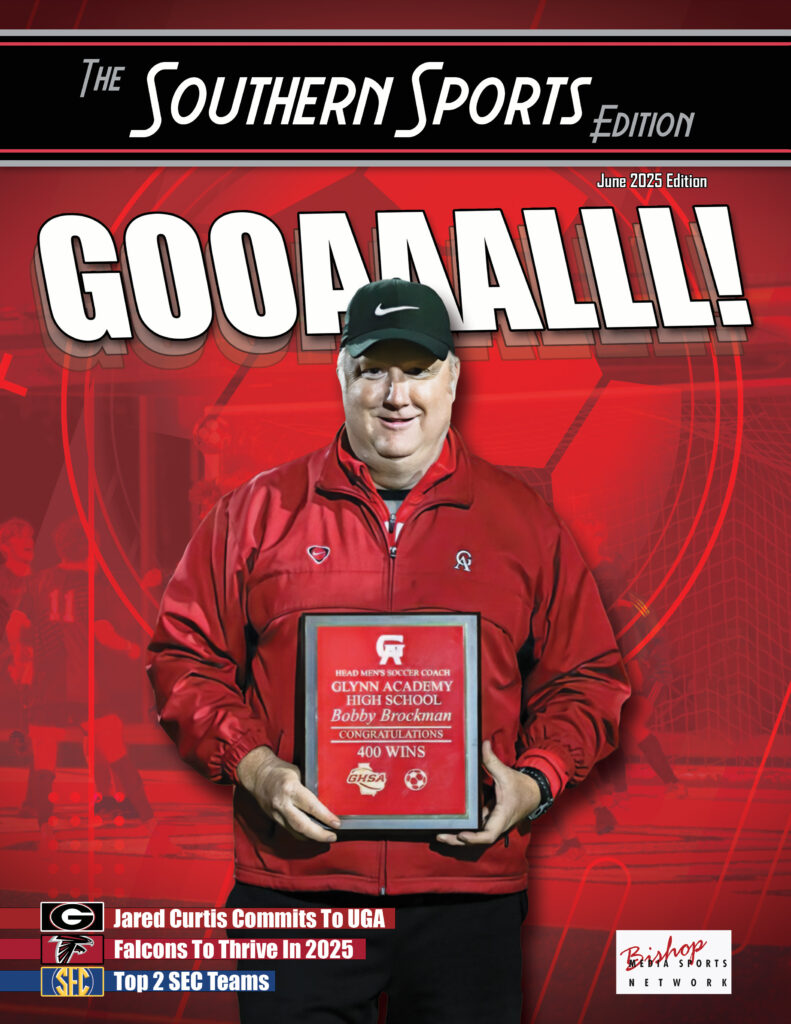Nico Iamaleava
Show Me The Money
 By: Michael Spiers
By: Michael Spiers
TheSouthernSportsEdition.com news services
I don’t know about you, but college football is my favorite sport.
It’s my favorite sport to watch, it’s my favorite to talk about, and it always been my favorite to report on.
Guys used to play the game by giving all they had, dreaming of the riches that may come for those fortunate enough to play in the NFL.
The collegiate game is definitely changing and looks more like the NFL because of Name Image and Likeness (NIL) money, and the ease of changing schools through the Transfer Portal.
Nico Iamaleava’s messy exit from Tennessee might’ve just shown us what college football’s new normal is going to look like.
After trying to renegotiate his NIL deal from around $2.2 million up to $4 million for the upcoming season, Iamaleava skipped a spring practice without telling anyone.
That was the final straw for head coach Josh Heupel, and now the once highly touted QB is in the transfer portal, looking for a new team and a bigger payday.
This wasn’t totally out of the blue. Iamaleava originally made headlines back in high school with an $8 million NIL deal, setting a new bar for recruits.
But now, with top quarterbacks like Carson Beck and Darian Mensah landing $4 million deals at Miami and Duke, Iamaleava’s camp, mainly his dad and agent, wanted to get him a raise to stay competitive.
The problem? It’s April, and most teams already have their rosters set. Plus, SEC rules mean he can’t transfer within the conference and play right away.
Options like North Carolina and Tulane were mentioned, but they’ve either backed off or just don’t have the budget for a $4 million quarterback.
All this has caused a lot of debate. Holding out is a move we’re used to seeing in the NFL, not college.
But with how NIL works right now, or doesn’t work, it’s kind of inevitable. There are no real rules or structure.
Deals vary wildly from one school to another, promises sometimes fall through, and the NCAA hasn’t done much to bring order to the chaos.
Without contracts that actually mean something or rules that apply to everyone, it’s a free-for-all.
Some folks say the fix is simple: treat players like coaches. Coaches sign contracts with buyouts. If they leave early, someone pays a fee. It could be the coach or the school hiring him, but that money changes hands.
That system doesn’t stop movement, but it does slow things down, maybe even helps with renegotiations or smoother exits.
If NIL deals worked the same way, with built-in buyouts, players and schools might think twice before jumping ship or playing hardball.
But that kind of fix only works if all the major schools are on board.
If some schools do it and others don’t, players will just follow the money to the places with fewer restrictions. And as long as athletes aren’t considered employees, there’s no collective bargaining to create consistent rules.
The NCAA keeps hoping Congress will step in, but let’s be real, that’s probably not happening. And any attempt to enforce tighter rules is likely to get challenged in court, like everything else the NCAA tries.
This isn’t about blaming Iamaleava or calling players greedy. It’s about recognizing that the system is broken and something has to give.
Right now, college football is stuck in this weird space where players have more power than ever, but the infrastructure hasn’t caught up.
Boosters and collectives are throwing around big money, but without guardrails, stories like this will keep popping up.
Iamaleava might not get the deal he wants this time around, but more players are going to try. This isn’t the end of college football, but it is a sign that the game’s rules, both on and off the field, are changing fast.
It’s time to stop reacting with shock every time something like this happens and start figuring out real solutions.




